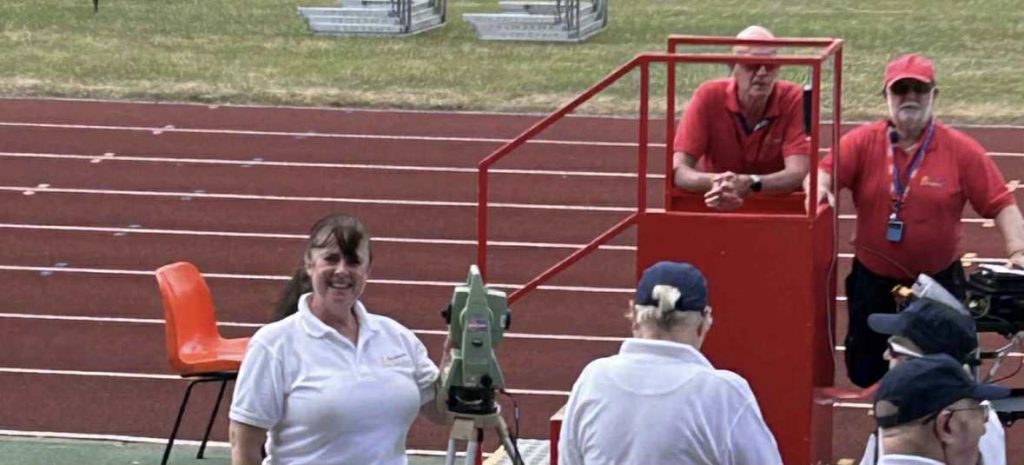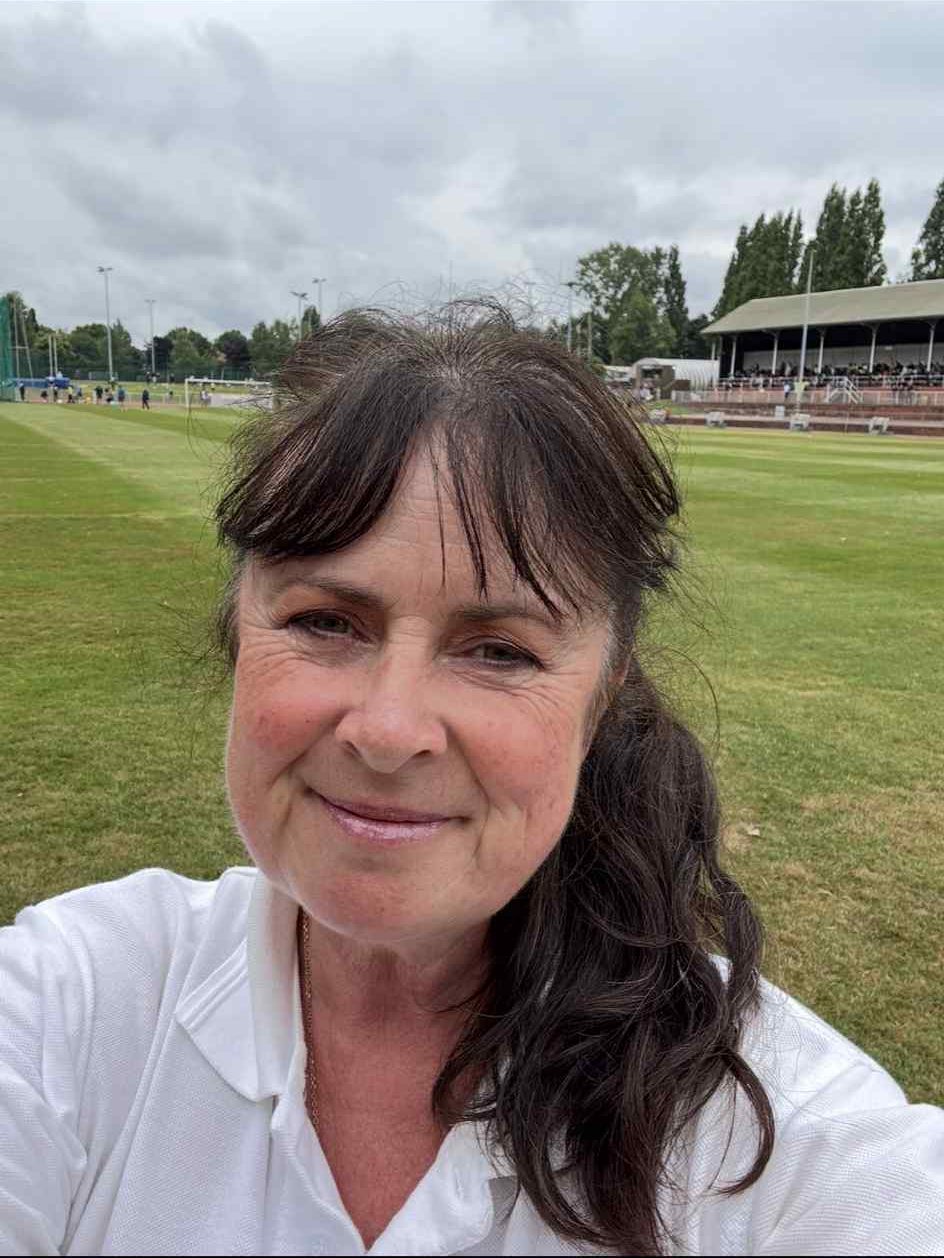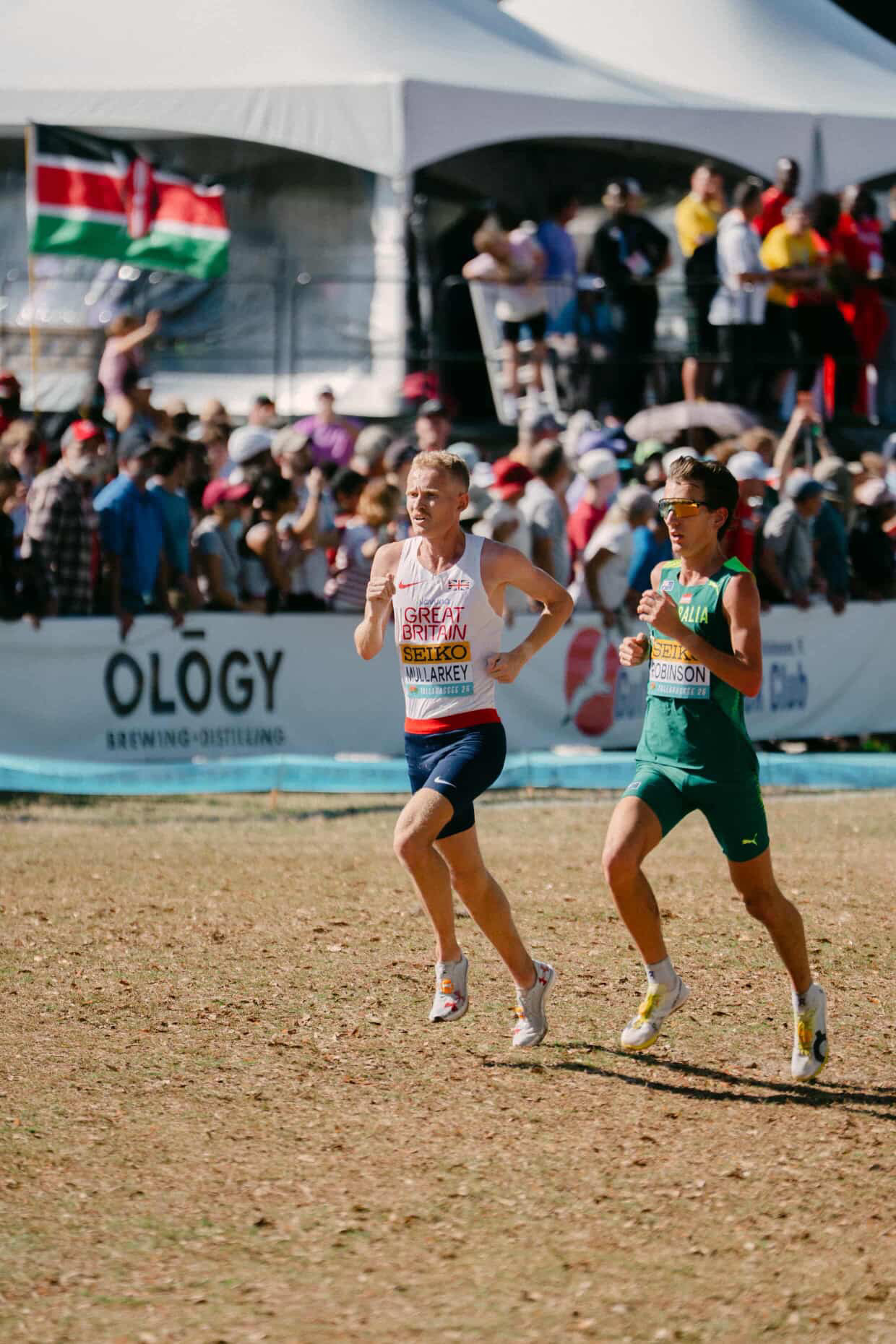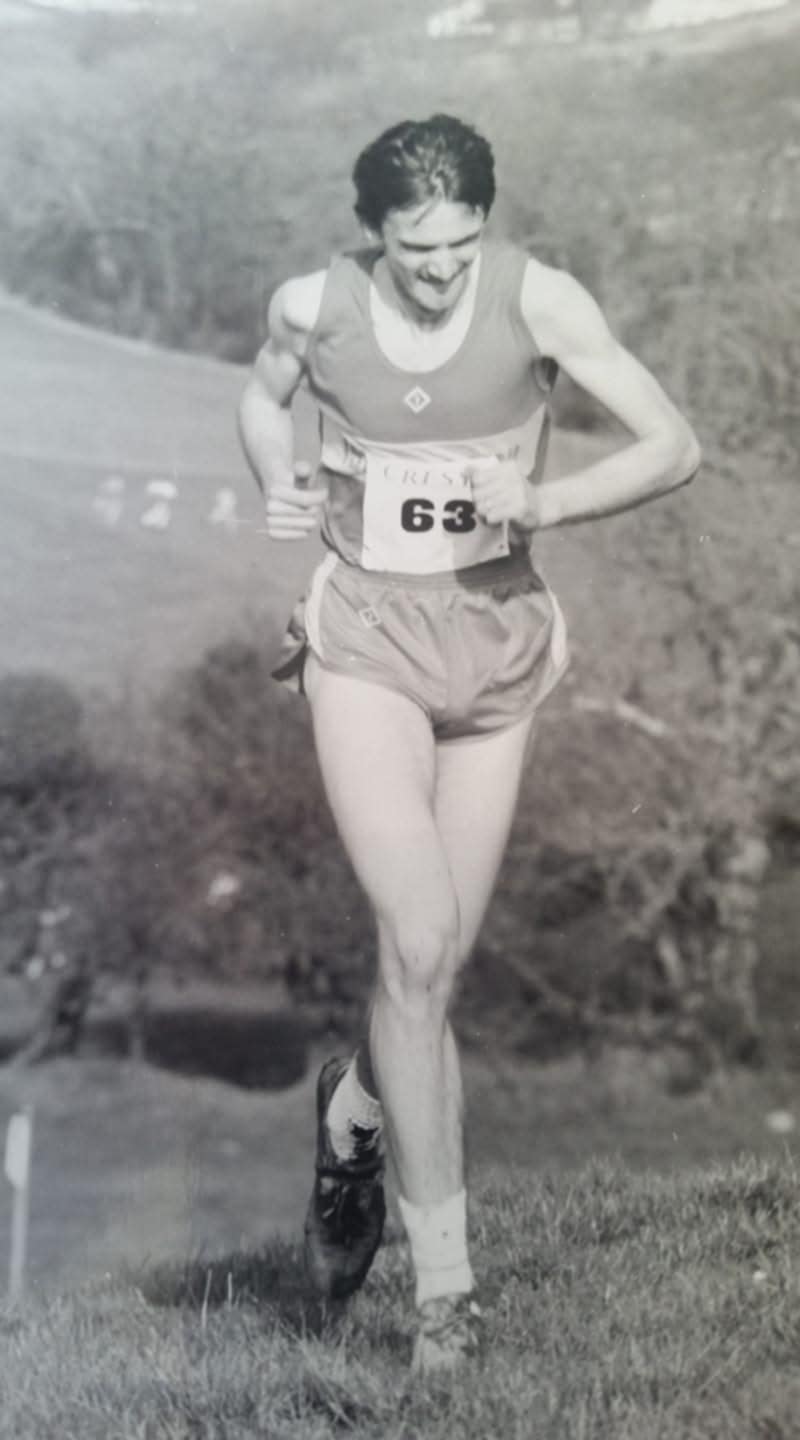Janelle Quayle – Q&A
A conversation with one of the Isle of Man’s dedicated field officials.
Background & Beginnings
How did you first get involved in athletics, and what led you to becoming an official?
It was through our children being athletes that I ended up getting roped in! When they were younger, it started with taking photos, but as they got older and more self-sufficient, I was asked to help out. I think I started on the long jump pit rake — as you do!
Was there a moment or event that made you realise officiating was something you wanted to do long-term?
Right from the start, it felt right to help out, as there were so few qualified officials. I had four children competing regularly, and if I wanted them to have their results on the Power of Ten (British results database), those events needed to be properly permitted with a set number of qualified officials.
How long have you been a field judge, and can you remember your first event in that role?
I qualified as a Level 2 official in 2015 — so it’s been 10 years now! I did a course at the Sports Institute and then started travelling to the UK with our YDL and Northern League teams. I can’t remember my first event, as I was already roped in at local level.
What was it about field officiating in particular that appealed to you?
I’ve always been an active person, so sitting around watching wasn’t for me. I really enjoy feeling part of something. I’d done it for gymnastics too, when the kids were there for hours on end! Our children’s interests and abilities lay in sprinting and jumping, so that naturally led me towards the field events — high and long jump, and later pole vault.
Role & Responsibilities
For those who might not know, can you explain what a field judge does during a competition?
A field judge can be asked to take on any one of eight field events, and within each event there are multiple roles. The eight events are: pole vault, long jump, high jump, triple jump, hammer, javelin, discus and shot put.
You might be asked to pull a tape measure through, record results, measure distances, change the height on the high jump or pole vault, put the bar back on, rake the sandpit, retrieve implements, and much more!
What does a typical day look like for you at a local or off-Island event?
I’m usually asked to lead a team of officials and helpers, as it’s preferable to have a Level 2 or above leading an event. Locally, I often lead the long throws, as they can be dangerous and need a Level 2 official to ensure everyone’s safety. In the UK, I can be asked to do anything across the eight events, as I’m working towards my Level 4 qualification and need exposure to a range of challenges. A typical day might mean several hours out on the field, officiating three or four different events.
What are the main challenges of the role, and how do you prepare to make sure everything runs smoothly?
Events on the Island are usually run with fewer helpers, as many parents are supervising other children. So those with qualifications often take on multiple roles that would be shared in the UK.
John Whitlow usually takes on the Field Referee role with his years of experience, while I act as Clerk of the Course. I like to arrive early to check that all the equipment is in place for each age group — for example, for the hammer, we’d need hammers of all weights, a long working tape measure (often a challenge!), a horn to alert officials, a spike for marking distances, and the hammer circle insert. I also check the throwing cage for holes and make sure the gates are positioned correctly.
Do you have a favourite field event to officiate — and if so, why that one?
I do indeed — pole vault!
It makes me very popular when we travel to the UK, as not many helpers share my enthusiasm for it. The reason is our son Glen, who’s had great success and enjoyment from pole vaulting locally, in the UK, and in the USA.
What level of qualification do you hold, and how is this different to other levels?
I hold a Level 3 qualification, which requires a more extensive knowledge base and experience, and allows you to officiate at higher levels. It’s an intermediate stage that prepares you for Level 4, although many people choose to stay at Level 3 as it suits their needs.
Getting to Level 4 is a big undertaking, but there’s great financial, emotional, and learning support from the two governing bodies in our North West region.
Memorable Moments & Development
Are there any standout events or moments that have stayed with you over the years?
Being assessed twice in two days in Middlesbrough in 2024 definitely stands out — it was both stressful and rewarding, as I passed both days! I led the hammer (a long throw event) and the pole vault (for its technicality). There was such great support from other officials and my mentors, it’s something I won’t forget.
Also, while being assessed for Level 3, I worked in the call room at an indoor competition. That was a great learning curve — I really enjoyed the interaction with the athletes.
You’ve seen so many local athletes grow and develop — what’s it like watching them progress from juniors to seniors?
That has to be the most rewarding part of it all. The hardest part is not being able to shout for them while they’re competing!
How is officiating off-Island, and how does that compare to local competitions?
I love officiating off-Island. Meeting new people and learning new things all the time makes a huge difference.
You get familiar with everyone locally, which is also lovely because you know what they’re most comfortable doing. The NSC is a tremendous facility, and the staff are very helpful overall.
There’s definitely an aversion to pole vault, though, which is a shame, as John has nurtured so many athletes to a good level, yet it still meets resistance.
How has being an official helped you develop new skills or experiences beyond athletics?
Many of the skills I use in officiating overlap with my job as a lifeguard.
It’s about managing people, making sure they understand their role without being patronising, encouraging athletes who aren’t at their best, and dealing with parents who question decisions.
It’s about being decisive, clear, and making the experience enjoyable for everyone — so they’ll want to help again, and maybe even become qualified themselves.
Community & Teamwork
Athletics events rely on teamwork behind the scenes — how important is the team dynamic among officials?
Teamwork usually makes the dream work — and even when it doesn’t, it certainly makes you feel better!
On the Island, you know you can always pull in a parent or older athlete to help in a difficult situation.
Motivation & Positives
What keeps you motivated to volunteer your time as a field judge?
It’s the camaraderie with other officials, feeling part of something bigger, seeing athletes excel, and celebrating their successes. I also know that if I wasn’t around, it would put more pressure on the team — so helping really does make a difference.
And I have a little “pipe dream” I’ll tell you about later!
Officiating can be busy and sometimes long days — what do you find most rewarding about it?
Knowing that because I’ve helped, the event has gone ahead and athletes are achieving their goals.
How does it feel knowing your work directly helps athletes perform at their best?
I probably don’t think about that enough — but it feels great when I do!
What are some of the biggest positives of being involved as an official — both personally and for the wider athletics community?
It’s great fun. It allows your children to excel, it’s about the friendships made with other parents and helpers, and it means you’re not just standing around freezing — you’re actually helping the event run smoothly!
Travelling away with the team is also fantastic. You get to know people on the journey, stay in nice hotels, enjoy the challenges of the event, and then have some well-earned downtime afterwards.
Getting Involved
For anyone reading this who might be interested in officiating, what would you say to encourage them to get started?
Just give it a go! Always tell the official in charge if you’re uncomfortable with a task — they’ll make sure you do something you’re happy with, or support you in learning how to do it. If you want to watch your child’s event, that can be worked around too.
How can people get involved in officiating here on the Isle of Man?
Just by offering to help at a Track & Field League night, or through their own club events.
What support or training is available for new officials?
This is definitely an area that needs work. However, other officials are always happy to help. Once you’re above Level 2, you’ll need a mentor — usually a Level 3 or 4 — which sometimes means finding one in the UK.
Why do you think it’s so important to have more volunteers and officials coming through the system?
We need more youth, strength, energy and enthusiasm! Our officiating family is getting older, and the more people we have to call on, the more evenly the workload can be shared.
Future & Legacy
What are your hopes for the future of athletics officiating on the Isle of Man?
That we continue to thrive with the help of new people coming through. I hope we build a strong mix of officials at all levels, and that I’ll be able to mentor upcoming officials myself once my own learning is complete.
I’d love to see more courses run and to hold familiarisation sessions for field judges and helpers, to teach by doing rather than just reading or listening — that’s how we learn best.
Do you have any personal goals or ambitions as an official going forward?
This is what I alluded to earlier — to reach Level 4 and officiate at the Olympics while my son Glen competes in the pole vault! It’s a pipe dream, but if you don’t believe, you won’t achieve.
My journey hasn’t been straightforward, as life gets in the way, but going forward… let’s see how far we can get!
What does it mean to you to help create opportunities for the next generation of Manx athletes?
It means everything. While my goal is a personal one, it also has a wider purpose. Every athlete teaches me something new, and I hope I can do the same for them.
Sometimes that means being tough, because at higher levels, athletes need to learn discipline — being on time, prepared, and resilient. It’s about nurturing the younger ones and teaching respect for the rules to the older ones.




